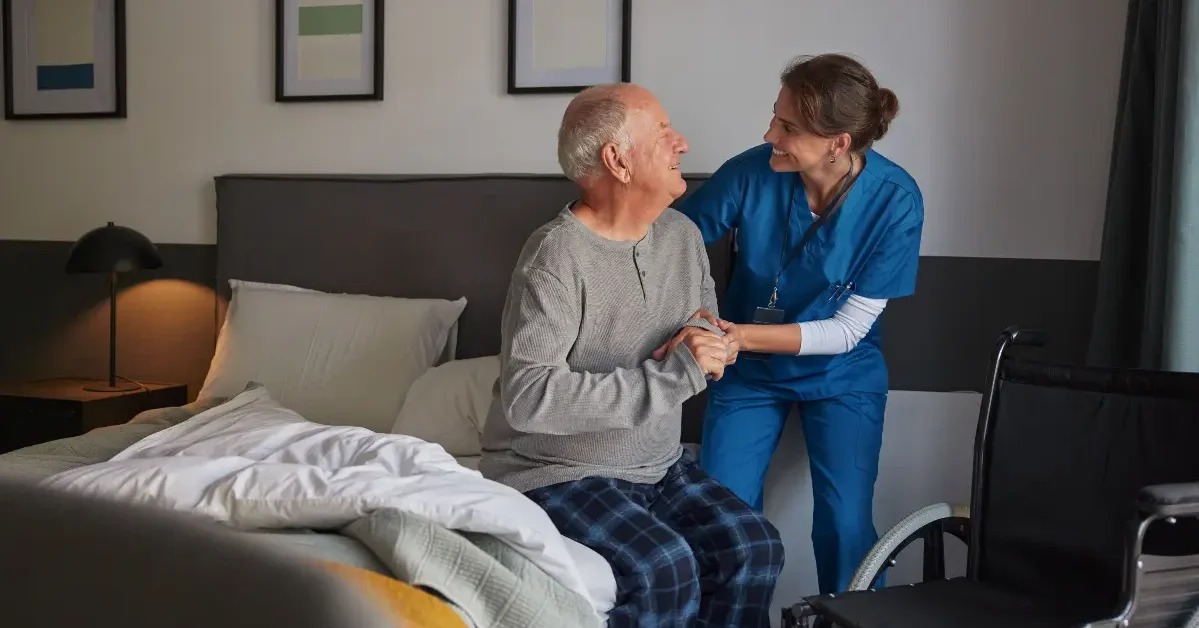Caring for a loved one with dementia is a journey filled with emotional, physical, and mental challenges. As the condition progresses, families often face difficult decisions about how to provide the best personal care.
One increasingly popular option is assisted living at home. It’s a model that combines professional support with the comfort of familiar surroundings. This approach offers various benefits to those with dementia and their family. Read on to learn more.
Contents
- 1 Curated Personal Care In A Familiar Setting
- 2 Safety and Security At Home
- 3 Supporting Cognitive and Emotional Wellbeing
- 4 Maintaining Routine and Independence
- 5 Relief and Support For Family Caregivers
- 6 Flexible and Adaptable Care Plans
- 7 Person-Centered Care Approach
- 8 Cost-Effective Alternative To Institutional Care
- 9 Building Trust and Companionship
- 10 Encouraging Family Involvement
- 11 Access To Specialized Services
- 12 Technology Enhancements For Safety and Monitoring
- 13 Cultural and Spiritual Sensitivity
- 14 Final Words
Curated Personal Care In A Familiar Setting
Dementia affects everyone differently. That’s why personalized care is essential. Assisted living at home allows caregivers to tailor support to the individual’s specific needs, preferences, and activities of daily living. That’s totally unlike what traditional nursing homes or retirement homes offer.
Unlike institutional settings, home care services provide a one-on-one approach. This familiarity helps reduce anxiety and fosters a sense of security.
Safety and Security At Home
Safety is a major concern for families of those with dementia. Wandering, forgetting to turn off appliances, or misplacing important items can pose serious risks.
In-home caregivers help create a safe environment by:
- Removing tripping hazards;
- Installing safety devices;
- Monitoring medication schedules; and
- Providing supervision during daily activities.
This proactive approach minimizes accidents and gives families peace of mind.
Supporting Cognitive and Emotional Wellbeing
Dementia doesn’t just affect memory. It impacts mood, behavior, and emotional health as well. Luckily, assisted home care supports cognitive stimulation and emotional connection through cognitive activities, reminiscence therapy sessions, social activities, and so on.
Maintaining Routine and Independence
Routine is vital for individuals with dementia. It provides structure and reduces confusion.
Assisted living at home allows for consistent daily schedules, which can include regular meal times, morning and bedtime routines, on-schedule medication management, along with scheduled activities and rest periods.
Relief and Support For Family Caregivers
Caring for someone with dementia is rewarding but also exhausting. Family caregivers often experience burnout, stress, and emotional fatigue.
Assisted living at home offers respite and relief by taking over daily caregiving tasks, providing companionship and supervision, and allowing family members to rest, work, or attend to other responsibilities. This support helps families maintain their own well-being while ensuring their loved one receives quality care.
Flexible and Adaptable Care Plans
Dementia is a progressive condition. Needs change over time. In-home assisted living offers flexibility to adjust care plans as the condition evolves.
Caregivers can increase support gradually: from a few hours a week to full-time or even round-the-clock care. This adaptability ensures that the individual always receives the right level of care without the disruption of moving to a new environment.
Person-Centered Care Approach
At the heart of effective dementia care is the person-centered approach. This means focusing on what matters most to the individual. That’s not just their medical needs, but their values, preferences, and life story.
The 4M Framework is often used in dementia care planning. It includes the following:
- What Matters: Understanding the person’s goals and preferences
- Medication: Managing prescriptions to avoid cognitive side effects
- Mentation: Supporting mental and emotional health
- Mobility: Encouraging movement to maintain physical function
This holistic approach ensures that care is not only effective but also respectful and meaningful.

Cost-Effective Alternative To Institutional Care
While assisted living facilities can be expensive, in-home care offers itself as cost effective alternative care. Families can choose the level of care that fits their budget: whether it’s part-time help or full-time assistance.
Additionally, staying at home can reduce costs related to transportation, facility fees, and other overhead expenses. Finally, some families qualify for financial assistance or insurance coverage for in-home care services.
Building Trust and Companionship
One of the most overlooked benefits of assisted living at home is the emotional bond that forms between the caregiver and the individual. Over time, caregivers become trusted companions; they offer not just help, but friendship.
This relationship can be incredibly comforting for someone with dementia, who may struggle with feelings of confusion or loneliness. Familiar faces and consistent care help build trust and emotional stability.
Encouraging Family Involvement
Unlike institutional settings, in-home care encourages active family involvement. Loved ones can participate in care planning, visit freely, and stay connected to the daily life of the person with dementia.
Access To Specialized Services
Modern in-home care services often include access to specialized dementia care professionals, such as:
- Memory care nurses;
- Occupational therapists;
- Social workers; and
- Geriatric care managers.
These experts can provide assessments, therapy, and guidance tailored to the unique challenges of dementia.
Technology Enhancements For Safety and Monitoring
Technology is playing a growing role in dementia care.
Assisted living at home can be enhanced with tools such as the following: location trackers for wandering prevention, medication reminders and dispensers, emergency alert systems, as well as video monitoring for remote supervision.
Such tools help caregivers provide safer, more efficient care while giving families added reassurance.
Cultural and Spiritual Sensitivity
Home care allows for culturally and spiritually sensitive care. Caregivers can incorporate traditions, languages, and practices that are meaningful to the individual and their family. This personalized approach fosters dignity, respect, and a deeper sense of connection.
Final Words
Assisted living at home is more than just a service; it’s a philosophy of care that honors the dignity, comfort, and individuality of those living with dementia. By combining professional support with the warmth of home, this approach empowers individuals to live with purpose, connection, and peace.
For families navigating the challenges of dementia, in-home assisted living offers a path forward; one that’s rooted in compassion, flexibility, and hope.

